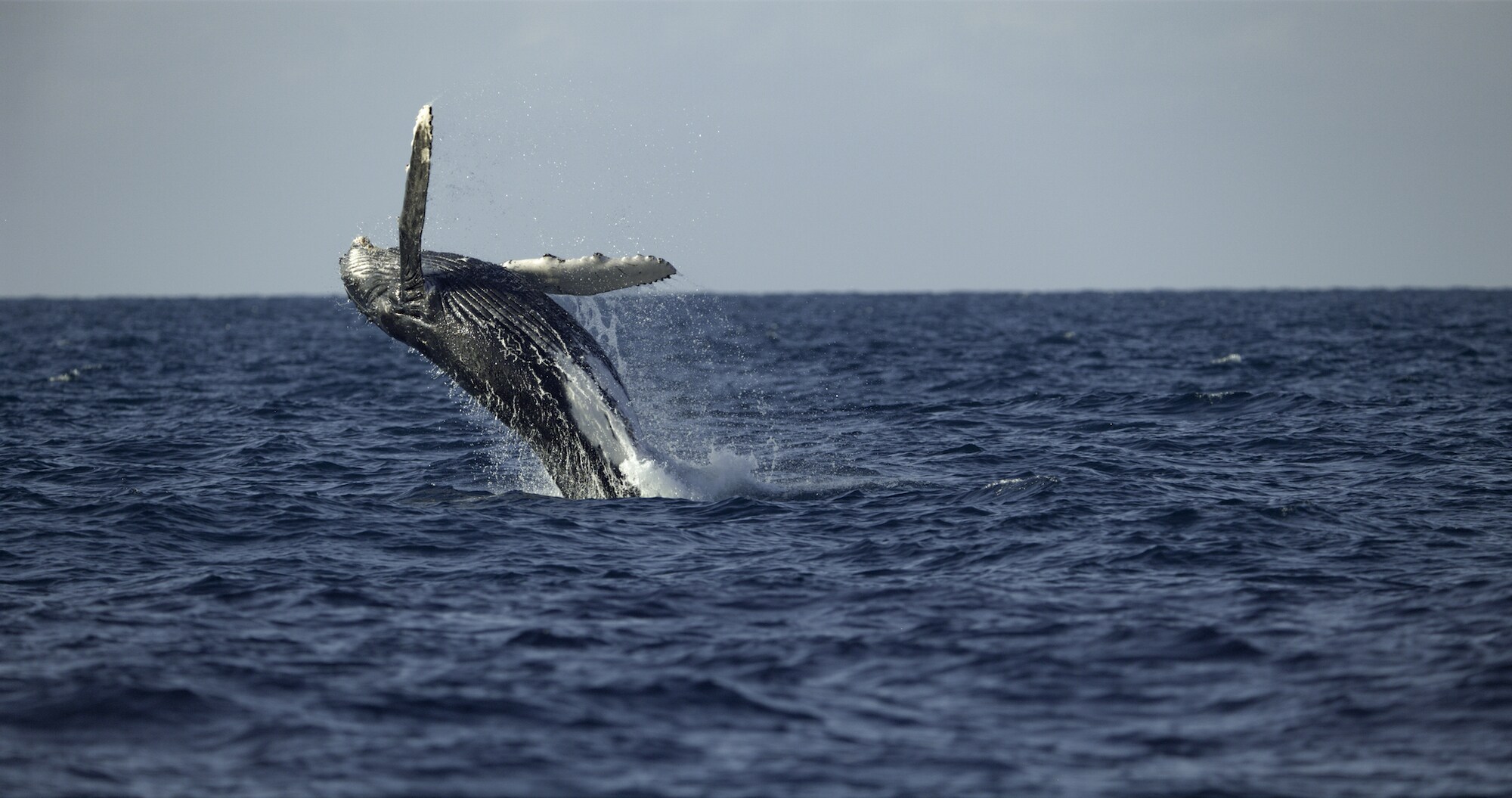We kind of know what whales are like – big and blubbery and such.
Or maybe we don’t know them at all. They vary widely, photographer Brian Skerry told the Television Critics Association. That can depend on the species, the region, even the individual.
“These animals do have languages,” said Skerry, whose richly crafted “Secrets of the Whales” (shown here) has an Earth Day debut on Disney+. “They do have dialects. (They) have rich lives, much like our own.”
Skerry’s four-part film, part of a deluge of nature shows Thursday (April 22, see separate list) – shows that range.
We see whales darting along the New Zealand reef, finding hidden stingrays. Or leaping perilously close to shore, to grab an unsuspecting fur seal. Or crafting a “bubble net” that rounds up fish.
Their whale brains – up to six times as big as ours – think about more than food. We see humpbacks who come up with a new mating song each year, with every male singing it.
There’s much more, said Skerry, who spent three years on the film. “They babysit. They have food preferences, depending on where in the world they are. They have singing competitions; they have parenting techniques and strategies. They also mourn for their dead.”
In the Norwegian Arctic, he saw an orca carrying her dead calf. And in New Zealand, an orca came up to him and dropped her snack (a stingray) on the ocean floor.
“She just hovered there and then she looked at me, looked at the ray, as if to say, ‘Are you going to eat that?’ When I didn’t, she just gently picked it up.”
He feels she was simply being a good hostess. “If you spend enough time with any given population of animals, you’ll see that they have individual personalities.”
And he’s spent plenty of time with them – 40 years of underwater photography, 23 of them for National Geographic. He’s one of the experts working for the magazine and for the National Geographic Channel (now part of the Disney domain), offering Earth Day warnings. They include:
– Enric Sala, 52, a Geographic explorer-in-residence. He told the TCA that human noise is complicating marine life. “We are making it very, very difficult for whales and other creatures in the ocean to be able to communicate, to be able to reproduce, to be able to survive.”
– Valerie Taylor, 85, whose filming has ranged from award-winning documentaries to “Jaws” scenes. “I’ve seen the world above-water and below, when it was almost pristine,” she said. It used to be easy to see sharks when snorkeling off the coast of her native Australia, she said. But “I haven’t seen … a potentially dangerous shark, (while) snorkeling, for years.”
– Skerry, 59, who points to all the chemicals absorbed by orcas. “When they have a calf, … those toxins and heavy metals are passed on and there’s a high mortality rate for calves.”
Those grim views fit the Earth Day themes, but so does the flip side: Several efforts to protect marine life hve succeeded, Sala said. “The ocean comes back spectacularly, marine life returns. The ocean has this amazing resilience.”
